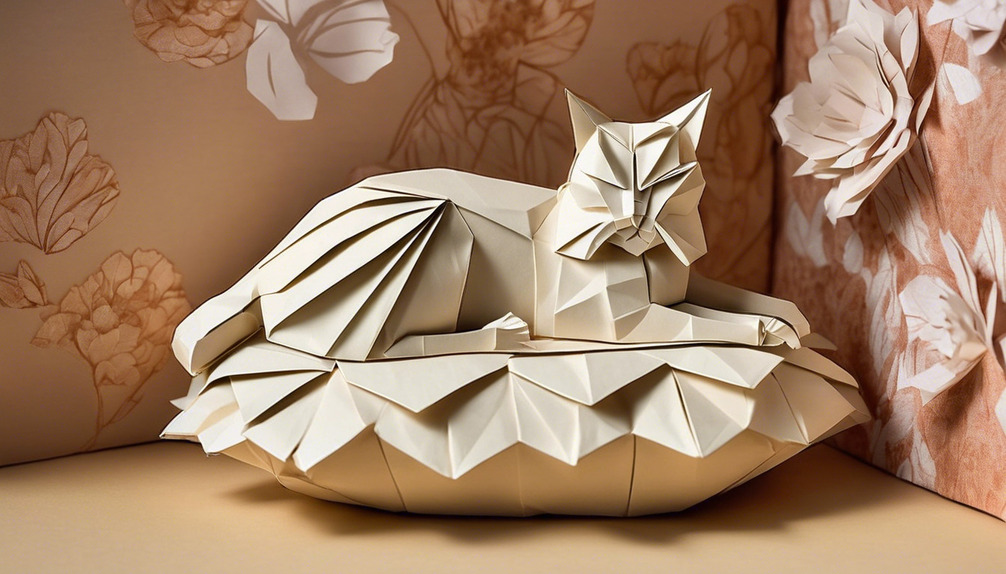If you’ve noticed that your aging cat’s skin seems to be more sensitive lately, you’re not alone. As cats get older, their skin can become more delicate and prone to irritation, making it crucial to provide the right care.
Whether your cat is experiencing dryness, itchiness, or other skin concerns, there are several tips that can help alleviate these issues and keep your cat comfortable.
With a few simple adjustments to their care routine, you can make a significant difference in your senior cat’s skin health and overall well-being.
Key Takeaways
- Aging and environmental factors can contribute to sensitive skin in senior cats.
- Signs of sensitive skin include dryness, itching, fur loss, and redness.
- Regular grooming with soft brushes and cat-specific grooming products can help prevent skin irritation.
- Consulting a veterinarian for proper diagnosis, treatment, and tailored grooming products is important for senior cats with sensitive skin.
Understanding Sensitive Skin in Senior Cats
If your senior cat is experiencing sensitive skin, it may be due to a combination of aging and environmental factors. As cats age, their skin can become more delicate, leading to a higher susceptibility to skin conditions. This, coupled with exposure to environmental factors such as pollen, dust, mold, and pests like ticks, fleas, mites, and lice, can contribute to skin issues in aging cats.
It’s important to be mindful of signs like dry, flaky skin, excessive scratching, fur loss, and redness or inflammation, which could indicate skin sensitivity in your cat.
Understanding the impact of sensitive skin on your senior cat’s health is crucial for maintaining their quality of life. Sensitive skin conditions can cause discomfort and affect your cat’s overall well-being. As a responsible pet owner, it’s essential to consider the role of natural oils in your cat’s skin health and seek out high-quality cat food formulated to support skin sensitivity.
Consulting with a veterinarian can help determine the underlying cause of the skin condition and explore appropriate treatment options to alleviate any discomfort your aging cat may be experiencing.
Grooming Tips for Aging Felines
As your senior cat’s skin becomes more delicate with age, grooming plays a crucial role in maintaining their comfort and well-being. Use a soft brush to gently groom your aging cat, preventing matting and skin irritation. Pay attention to any lumps, bumps, or skin abnormalities while grooming and consult a veterinarian if you notice anything concerning.
Regularly trim your cat’s nails to prevent overgrowth and discomfort, especially if they’re less active or unable to maintain them on their own. Consider using cat-specific shampoo and warm water for occasional baths to keep your cat clean and comfortable, if they’ve skin conditions. Seek advice from a cat-only veterinarian for grooming concerns specific to aging felines.
Ensure your senior cat stays healthy with high-quality cat food containing omega-3 fatty acids, which can help maintain your cat’s immune system. These changes in your cat’s diet can be particularly beneficial for older cats with sensitive skin, helping them stay comfortable and happy as they age.
Choosing the Right Grooming Products
When selecting grooming products for your senior cat with sensitive skin, it’s essential to choose hypoallergenic options formulated specifically to prevent irritation and allergic reactions.
- Opt for hypoallergenic grooming products specifically formulated for sensitive skin to prevent irritation and allergic reactions.
- Look for grooming products with natural ingredients and no harsh chemicals to minimize the risk of skin irritation.
- Consider using gentle, moisturizing shampoos and conditioners designed for aging felines to maintain skin hydration and coat health.
- Choose grooming tools such as soft-bristled brushes and combs to prevent skin irritation and discomfort during grooming sessions.
- Consult with a veterinarian to select grooming products tailored to your cat’s specific skin sensitivities and aging-related needs.
As senior cats age, they become more prone to health issues, including sensitive skin. Regular veterinary check-ups are crucial to address any underlying health problems. Dental care, fur and dry skin maintenance, and body condition monitoring are essential aspects of senior cat grooming.
Maintaining a Gentle Grooming Routine
To maintain a gentle grooming routine for your aging cat, it’s crucial to use a soft-bristled brush and handle sensitive areas with care. As your cat ages, their skin becomes more delicate, and they may experience discomfort during grooming.
Pay special attention to areas like the belly, underarms, and hindquarters, and be gentle to avoid causing any distress. Keep grooming sessions brief, calm, and soothing, ensuring that your cat feels relaxed throughout the process.
Using cat-specific grooming products that are gentle on the skin and rinsing thoroughly can help prevent irritation. It’s essential to be attentive to any signs of discomfort or skin issues during grooming, as they could be indicative of underlying health concerns.
If your aging cat has mobility issues or struggles with grooming, consider consulting with a professional groomer who can provide specialized care. Your cat’s health and well-being are of utmost importance, and maintaining a gentle grooming routine can contribute to their overall comfort and happiness in their senior years.
Addressing Skin Care Concerns in Senior Cats
As your aging cat’s skin becomes more delicate, addressing potential skin care concerns becomes increasingly important in ensuring their comfort and well-being. Caring for senior cats involves being proactive in maintaining their skin health.
Here are some essential tips to address skin care concerns in senior cats:
- Regular Skin Inspections: Regularly inspect your senior cat’s skin for signs of dryness, redness, or irritation in areas they can’t groom easily.
- Consult a Veterinarian: Seek professional veterinary care to identify and address any skin conditions, allergies, or infections that may be affecting your senior cat’s skin health.
- Specialized Nutrition: Consider using specially formulated cat food with high-quality protein, essential fatty acids, and antioxidants to support your senior cat’s skin health.
- Gentle Grooming: Create a comfortable grooming routine for your senior cat, including gentle brushing to prevent matting and promote healthy skin and coat.
- Stress-Free Environment: Provide a stress-free environment for your senior cat, minimizing changes and disruptions that could impact their skin health.
Frequently Asked Questions
What Can I Do About My Cats Sensitive Skin?
You can help your cat’s sensitive skin by feeding them high-quality cat food designed for skin sensitivity and ensuring it contains essential nutrients like protein and fatty acids. Consult a vet to determine the cause and discuss treatment options.
What Is Good for Sensitive Skin for Cats?
For sensitive skin in cats, a high-quality diet with essential nutrients is essential. Look for food containing high-quality protein, fatty acids, and antioxidants. Regular grooming and vet-recommended diets like Science Diet® can also help.
How Can I Soothe My Cats Itchy Skin?
To soothe your cat’s itchy skin, try natural remedies like oatmeal baths or coconut oil. Use hypoallergenic cat shampoos and a humidifier to add moisture to the air. Consult a vet for dietary changes and regularly groom your cat.
How Can I Moisturize My Cats Skin?
To moisturize your cat’s skin, use a veterinarian-recommended, hypoallergenic moisturizing shampoo. Consider adding omega-3 and omega-6 fatty acid supplements to their diet. Ensure they have access to clean water and use a humidifier in your home.




